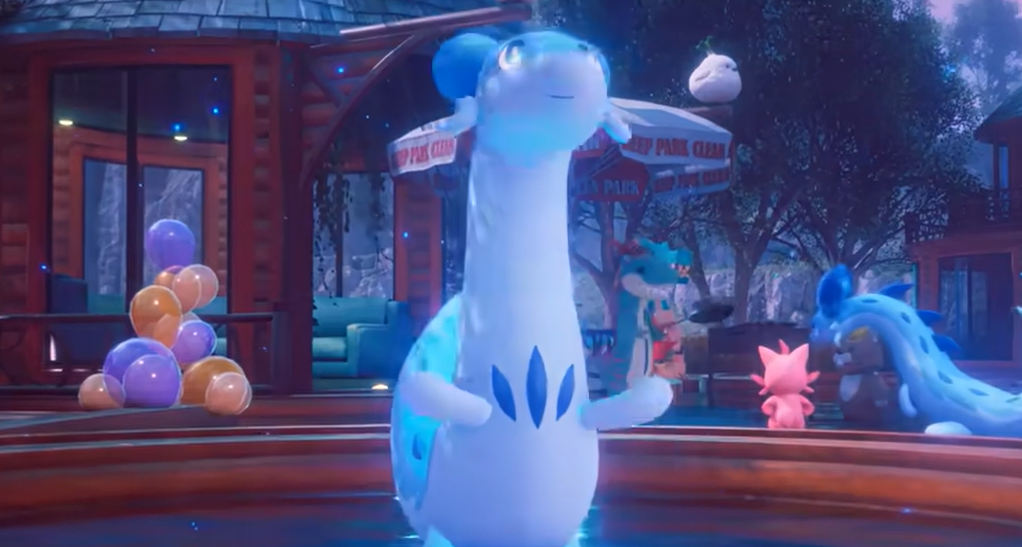The oddball creature-collection game captivated people all over the world and sold over eight million copies in just six days. Its tone was playful yet darkly humorous, eerily reminiscent of a satirical commentary on the gaming industry itself. Many of the creatures known as “Pals,” which players captured and trained, remarkably resembled Pokémon. This similarity generated discussion, awe, and eventually legal action.
Palworld developer Pocketpair was accused of using mechanics that infringed upon Nintendo’s intellectual property in a patent infringement lawsuit brought by Nintendo and The Pokémon Company in Japan. Curiously, though, it had nothing to do with stealing plots or character designs. Rather, it concentrated on gameplay systems, particularly the ways in which creatures could be captured and interacted with.
Nintendo’s case was based on three patents, according to court documents: two that dealt with the “capture and release” features and one that dealt with how players “ride” creatures while playing the game. The fact that these patents seemed to have been submitted as extensions of previous Nintendo patents from 2021, following Palworld’s ascent, made this especially intriguing. It was a highly calculated legal move intended to modify intellectual property rights to accommodate a shifting gaming environment.
To Pocketpair, this was unexpected. The studio expressed confusion and disappointment by publicly stating that it was unaware of the specific patents in question. However, in response to increasing pressure, the developers made remarkably measured changes to the game’s mechanics in order to reduce any perceived infringement. Players could now immediately summon creatures to capture them instead of tossing a sphere-shaped object. Glider gear that extracted passive energy from the creatures took the place of the glide mechanic, which was previously reliant on clinging to a Pal in midair.
Pocketpair – Palworld Developer Profile
| Field | Information |
|---|---|
| Company Name | Pocketpair Inc. |
| Founded | 2015 |
| Founder & CEO | Takuro Mizobe |
| Headquarters | Tokyo, Japan |
| Famous Title | Palworld |
| Genre | Open-world survival / creature collection game |
| Release Date | January 19, 2024 |
| Lawsuit Filed By | Nintendo and The Pokémon Company |
| Type of Lawsuit | Patent Infringement (Japan) |
| Estimated Damages | Approx. $66,000 |
| Reference | IGN – Nintendo Rewrites Patent Mid-Case in Palworld Lawsuit |

These adjustments significantly improved player experience while lowering legal risk. They also demonstrated the quick adaptation of smaller studios, which big businesses frequently find difficult to match. Pocketpair was able to keep Palworld open to millions of fans and avoid an immediate injunction by doing this.
From a legal standpoint, Nintendo’s choice to sue over patents rather than copyright was especially novel. Japanese patent cases have a stricter structure and require less discovery, which exposes the claimant to less risk. Nintendo developed a very effective method to test the limits of intellectual property law without depending on arbitrary artistic comparisons by taking advantage of Japan’s patent-friendly environment.
But as the case progressed, flaws emerged. Nintendo made the unusual and dangerous decision to reword one of its important patents in the middle of the case, according to legal analysts from IGN and GamesRadar. New words like “even when,” which legal consultants characterized as unusually emphatic and possibly suggestive of uncertainty, were incorporated into this rewording. This change implied that Nintendo was concerned that its initial assertions might be rejected as being too nebulous or out of date.
The Palworld community, meanwhile, came together. Online conversations likened Pokémon’s Pikachu to Palworld’s creatures, such as Sparkit, pointing out that the designs were both aesthetically different and endearingly similar. The combat-oriented goal and somewhat mechanical appearance of Sparkit were perceived as satire rather than imitation. Many fans, who saw Palworld as a lighthearted critique of corporate control in gaming rather than plagiarism, found this distinction to be particularly evident.
Pocketpair has maintained remarkably admirable composure throughout this ongoing legal standoff. The studio kept adding new features to Palworld, such as a joint expansion with Terraria. These advancements not only maintained the momentum but also showed that creativity can flourish in the face of criticism. The success of the game serves as a reminder that creativity can endure and even thrive in the face of legal uncertainty.
The lawsuit is a cultural statement as well as a defensive tactic for Nintendo. From Mario to Pokémon, the company has long maintained a reputation for consistency and brand integrity by being protective of its creations. However, this specific instance has given rise to a new kind of criticism: that Nintendo might be being unduly forceful in defending legacy mechanics that have grown fundamental to gaming over the years.

